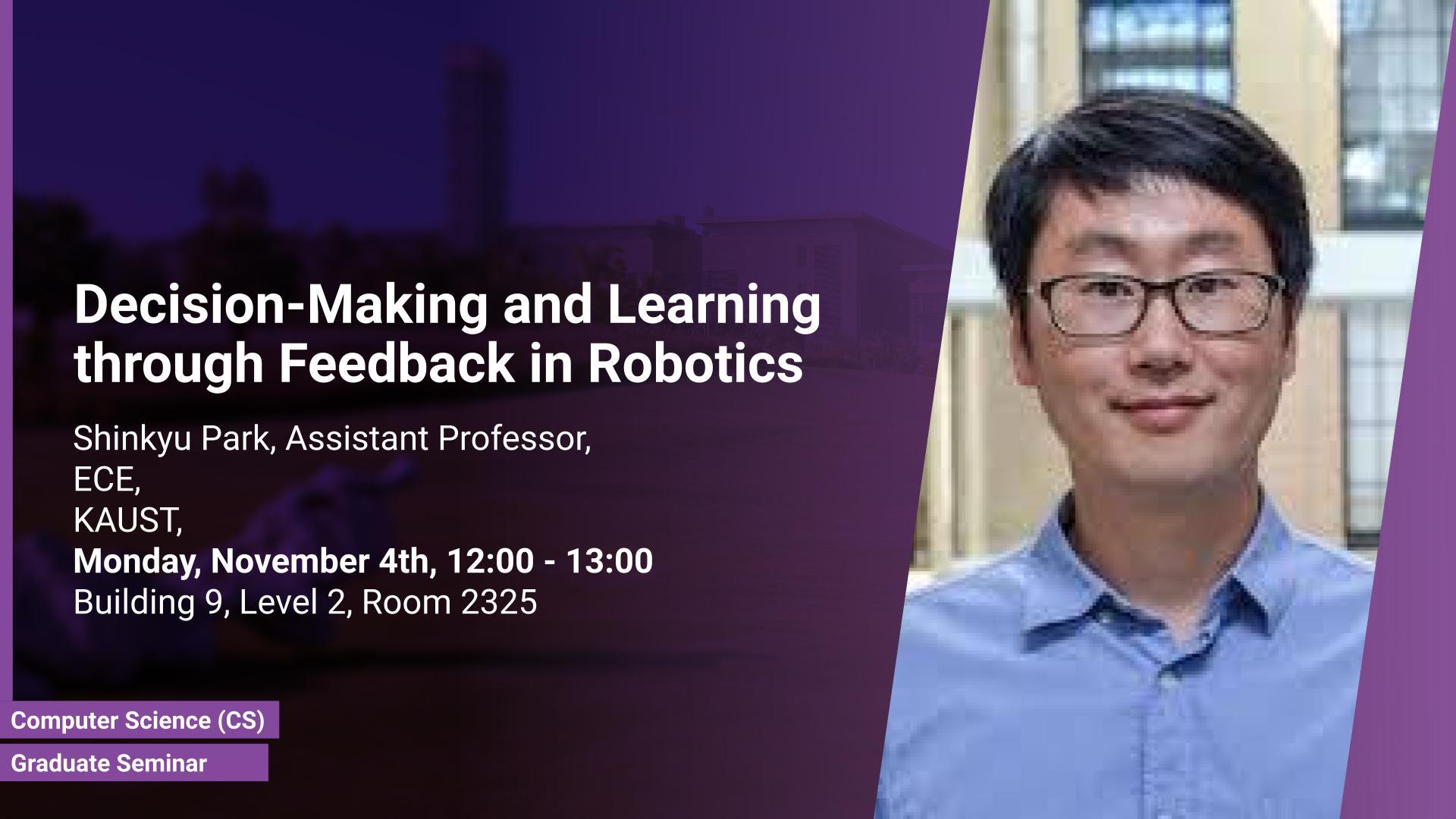Event Start
Event End
Location
Abstract
With the advancement of supporting technologies, robots are increasingly deployed in a wide range of applications, from smart factory automation and precision agriculture to large-scale environmental monitoring, such as underwater exploration. In this talk, we will explore key research themes in robot decision-making and learning that are essential to these application domains. In the first part, I will delve into the design of models for sequential decision-making that leverage machine learning techniques. We will examine how these models enable robots to effectively integrate feedback from past behavior to optimize model parameters, ultimately enhancing decision-making processes, with applications in robotic assembly and collective transport. In the second part, I will focus on multi-robot task allocation, where multiple robots must learn to adopt effective team strategies to accomplish assigned tasks. Using the framework of large population games, we will discuss how feedback on strategy selection, presented as payoffs, combined with a decentralized decision-making model, can lead to the learning of optimal team strategies.
Brief Biography
"Shinkyu Park is the Assistant Professor of Electrical and Computer Engineering and the Principal Investigator of the Distributed Systems and Autonomy Group at King Abdullah University of Science and Technology (KAUST). His research centers on learning, planning, and control in multi-agent and multi-robot systems. He aims to make foundational advances in robotics science and engineering by enhancing individual robots’ core capabilities in sensing, actuation, and communication, and by training them to work as a team and achieve a high level of autonomy in distributed information processing, decision-making, and manipulation.
Before joining KAUST, Park was an Associate Research Scholar at Princeton University, where he contributed to cross-departmental robotics projects. He earned his Ph.D. in Electrical Engineering from the University of Maryland, College Park, in 2015. Following his doctorate, he held Postdoctoral Fellow positions at the National Geographic Society (2016) and the Massachusetts Institute of Technology (2016–2019). Park is the recipient of the 2022 O. Hugo Schuck Best Paper Award (Theory) from the American Automatic Control Council (AACC)."
